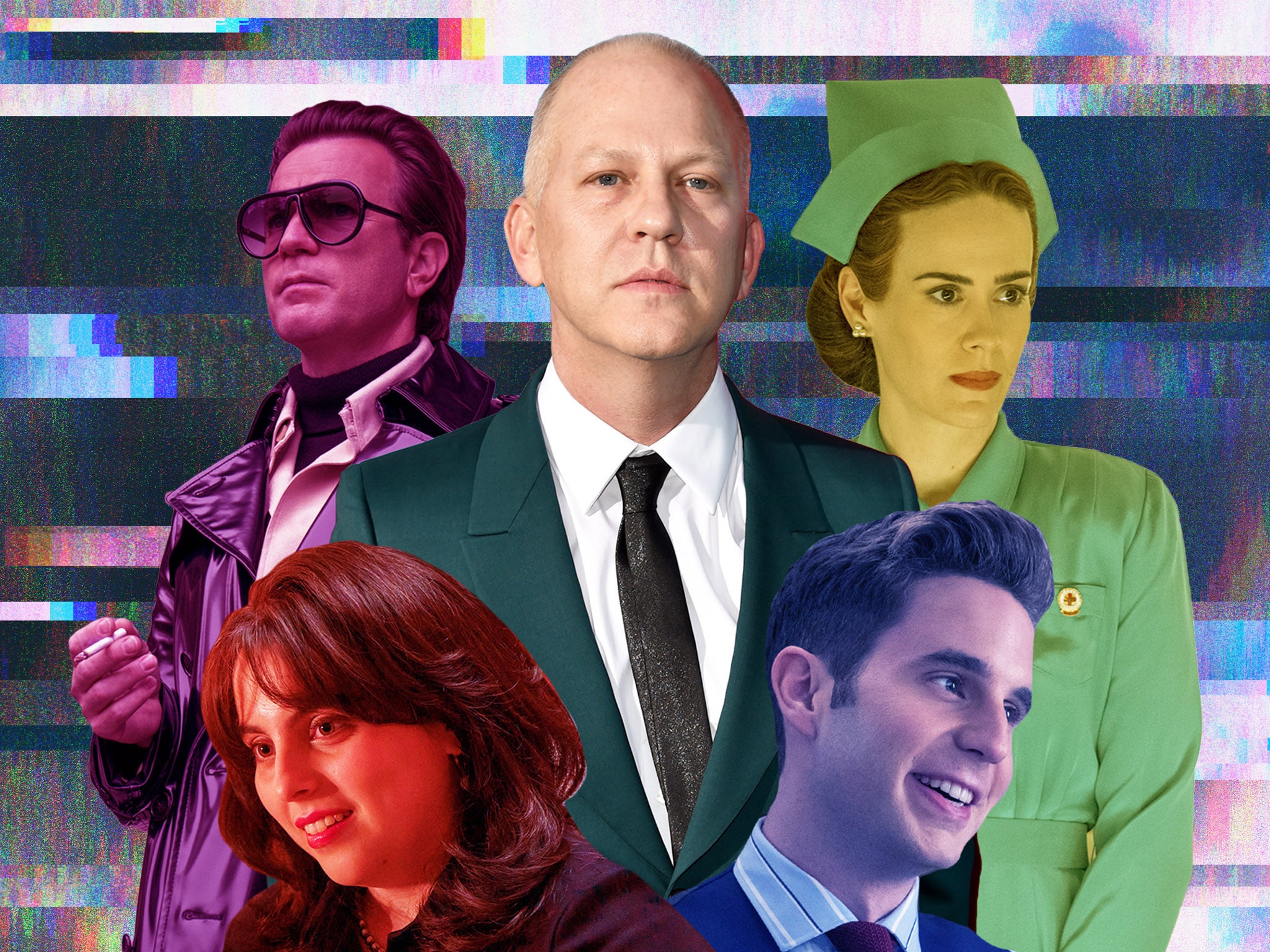All hail Ryan Murphy, Hollywood’s $300m king of phoning it in
Netflix paid millions of dollars for fresh output from the man behind ‘Glee’, ‘American Horror Story’ and ‘Pose’. But with ‘Ratched’, ‘Halston’ and ‘The Politician’ borderline unwatchable beneath the pizzaz and star casting, Ed Cumming asks: where did it all go wrong for one of TV’s most exciting auteurs?


Your support helps us to tell the story
This election is still a dead heat, according to most polls. In a fight with such wafer-thin margins, we need reporters on the ground talking to the people Trump and Harris are courting. Your support allows us to keep sending journalists to the story.
The Independent is trusted by 27 million Americans from across the entire political spectrum every month. Unlike many other quality news outlets, we choose not to lock you out of our reporting and analysis with paywalls. But quality journalism must still be paid for.
Help us keep bring these critical stories to light. Your support makes all the difference.
When Netflix hired the super-producer Ryan Murphy in 2018, it was taken as a statement of intent, about as subtle as jumping up and down, beating their chest and roaring at their rivals. In football terms, Murphy was a big money signing, a telly galactico, proof if it were needed that the streamer was serious about its plans for world domination. Damn the cost.
Whatever he touched turned to hit. For TV, he had created the plastic surgery drama Nip/Tuck, the high-school song-and-dance fest Glee and the 1980s ball scene extravaganza Pose. With the feature film Eat Pray Love, an adaptation of Elizabeth Gilbert’s book, he somehow converted Julia Roberts wanting a pizza into $200m (£145m) at the box office. There was something for everyone in Murphy’s locker: glossy drama for adults, self-help for divorcees, happy schmaltz for kids, American Horror Story for whoever watches that.
The price was fitting for the reputation of a man routinely described as one of the most powerful people in Hollywood. Murphy was given a reported $300m, five-year “overall deal”, where Netflix would take whatever he decided to bring them. In production terms, it was as close to absolute freedom as anyone is likely to get without owning the studio or being Christopher Nolan.
It was also, to judge by Murphy’s output since he signed, a titanic waste of money. Actually, that’s unfair to Titanic, which cost $200m but brought in 10 times that and won a load of Oscars. The series Murphy has brought to Netflix have ranged from the mediocre to the borderline unwatchable. They have not won any Oscars.
First there was The Politician, about overambitious student politicians. Then there was Hollywood (overambitious postwar actors), Ratched (overambitious nurse) and Halston (overambitious designer). The latest strand of his American Crime Story franchise will star Beanie Feldstein as Monica Lewinsky.
These programmes all share a preference for style over substance. The costumes and sets and locations and cast are shiny and brightly lit. But beneath the pizzazz and starry casting – Gwyneth Paltrow in The Politician, Jim Parsons in Hollywood, Sharon Stone in Ratched – these are series in search of an animating idea. The Politician didn’t say anything that hadn’t been articulated with more bite by Election, although it still bore traces of satirical fizz, at least in its first series. Hollywood was as flat as an old director’s cap. Its central subversive observation was that some people in showbusiness after the war might have been secretly gay. The dialogue was weak, the characters were narcissistic caricatures. This is fast food dressed up as fine dining: appealing in the short term but ultimately unsatisfying.
Counterintuitively, Murphy’s failure is grounds for optimism. It’s evidence that while money might buy you endless visual treats and marketing budgets and Paltrow’s valuable time away from hawking vagina candles, it can’t buy you quality. When it comes to budget and creative control, you can have too much of a good thing. That kind of deal would make anyone lazy. Murphy is the king of phoning it in. He’s not so much resting on his laurels as tucked up on them, fast asleep, less Hollywood than Holly-will-this-do? Even Federer has a coach, and the most talented writers or producers need someone to say no from time to time. In Nolan terms, Tenet was not a greater work than Memento. When someone says no, the creator has to make a different kind of decision. Good work remains an elusive alchemy of producer, director, writer, cast and crew that cannot be forced, even by Netflix.
Not that the experience with Murphy seems to have discouraged them. They have signed up everyone from DB Weiss and David Benioff to Shonda Rimes to Prince Harry & Meghan Markle. At least the latter have a proven track record when it comes to generating elite drama. Other streamers have their own superdeals, like Amazon’s with Phoebe Waller-Bridge. It’s reminiscent of divorcing oligarchs signing up dozens of barristers, just to stop them working for the opposition. Maybe the thinking is that it’s safer to have them pumping out dross inside the tent rather than risk them coming up with a hit for a rival.
As to the man himself, Murphy is unlikely to mind that reviewers have been sniffy about these programmes. Despite his piles of awards, he has never been a critical darling. The notices of Nip/Tuck and Glee were far from perfect. He is a quintessential populist, with a proven eye for what audiences want even if it’s different from what reviewers think they want. Besides, before he moved into TV Murphy was a journalist. It will come as no surprise to him that the one thing journalists can’t bear, even more than a glossy series with flimsy dialogue, is a hack who’s made $300m.



Join our commenting forum
Join thought-provoking conversations, follow other Independent readers and see their replies
Comments